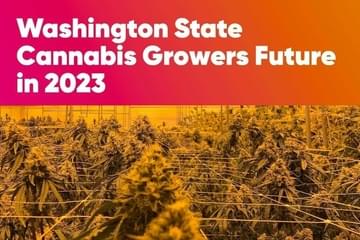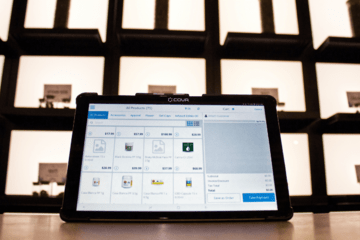
Rise of the Craft Cannabis Industry
Published on 4/9/21
In recent years, we have seen a big trend toward local, craft products: microbreweries, craft distilleries, locally sourced water, artisanal food. One of the newest industries to see a boom in the craft scene is cannabis. As more people are becoming aware of the social and economic benefits of supporting local businesses that put extra effort into their products, so too are consumers realizing this is true of weed. Let's take a look at what craft cannabis is, why it's important to support local businesses, and how small cultivators can set themselves apart from major operations.
Craft Cannabis vs. Commercial Marijuana
 Unsplash
UnsplashCraft cannabis is high-end, small-batch, and locally owned and operated. It is marijuana produced by companies that focus on quality, sustainability, lifestyle and community integration. There are several key differences between craft and commercial cannabis, including quality and environmental impact, both of which affect one another. Larger farming operations rely on industrial processes to harvest, dry and cure their crop, which has more than one negative effect. Ideally, marijuana dries out naturally so that the plant doesn't undergo undue stress. Industrial cultivation results in a lesser product for consumers. There has been a persistent opinion throughout legalization that legal marijuana is bad, and this is why. Larger companies are dominating the legal space with cheaper, high-yield products. This is bad for consumers, the industry and the environment.
Larger commercial operations (which is the majority of the industry) farm tens of thousands of acres repeatedly to get the most out of their yield. Similar to other types of farming, the soil needs time to replenish and larger commercial farmers often don't address the health of their crop and land the same way smaller craft farms can. Biodynamic agricultural methods, organic certification and detailed attention to the land by replenishing nutrients through rye and other tactics are key to producing a quality crop and keeping the environment healthy. Farmed in smaller batches, craft cannabis allows for greater control over quality and environmental impact. Smaller batches and the use of local resources also help the economy and social progress.
Why It's Important to Support Local Marijuana
 Unsplash
UnsplashLarger businesses take up more of the overall market, leaving less room for diversity in both product and human involvement. In recent years, many people called out the cannabis industry's lack of racial and gender diversity, and several organizations are working hard to correct this issue. By supporting local cannabis businesses, both in the dispensaries you patron and the marijuana you buy, you have more agency over deciding who to back as a consumer. As a community, cannabis needs to grow socially and economically - both of those goals are more achievable when smaller craft operations are given the chance to flourish.
Local businesses have to put up a lot of money to begin operations, but unfortunately, a lot of them don't make it. The people going into craft cannabis are often choosing a lifestyle and putting a lot at risk for developing the local cannabis scene. These small operations are growing better cannabis and enriching the local economy through their business. The only way craft cannabis can thrive and become the industry standard is by consumers actively deciding to buy their product and support local. If not, large cannabis will take over the industry and sub-par, mass-market marijuana will be the only legal option.
How To Market Craft Cannabis
 Unsplash
UnsplashIt's up to consumers to purchase craft cannabis and invest in the future of the industry through their consumer choices, but it's up to craft cannabis companies to market themselves properly to ensure consumers are aware of the choice. It all comes down to education. As a craft cannabis business, it should be part of your mission to educate consumers and highlight why craft cannabis is necessary and more desirable. Create marketing materials that highlight the benefits of craft cannabis:
- Higher quality
- Smaller farms & healthier environmental impact
- Industry diversity and social inclusion
- Economic & local community impact
- Lifestyle choices and the family farm story
These are all points that commercial cannabis can't make, and much like the detail of craft cannabis, local producers can tailor their marketing content to speak louder and tell a higher-quality story. While the cannabis industry is limited by federal regulations, there are marketing tactics at your disposal, the most important of which is social media and your company's website. Create a website that highlights each of your farmers, the story of the company, and your overall mission. Build pages that detail the positive impact craft cannabis has on the environment, economy, social inclusion, and marijuana quality. Be a transparent educational resource and have then weave this story into your social media. Build a following of local cannabis users and create a brand that people connect to and want to support.
Cannabis Appellations and New Industry Standards
Outside of individual company efforts, there is another educational source being built that could significantly tip the industry in favor of craft cannabis: appellations. Most commonly associated with wine, appellations are geographical boundaries used to identify the specific origin of a product. Each appellation has unique regulations that determine what types and quantities grown within that region. For wine, appellations dictate what type of grapes grow, what the maximum alcohol levels are, and how much a vineyard can make.
The creation of cannabis appellations would provide a standard for different regions within each state, offering more structure for producers and more information for consumers. California is currently working to create appellations within the state. If this program is built across America, consumers will have easier access to education and the quality of craft cannabis will be easier to identify for what it is.
We're always excited to see craft cannabis rise to the occasion. What are some of your favorite craft cannabis brands and how do they differ from what else is available? Comment below!









